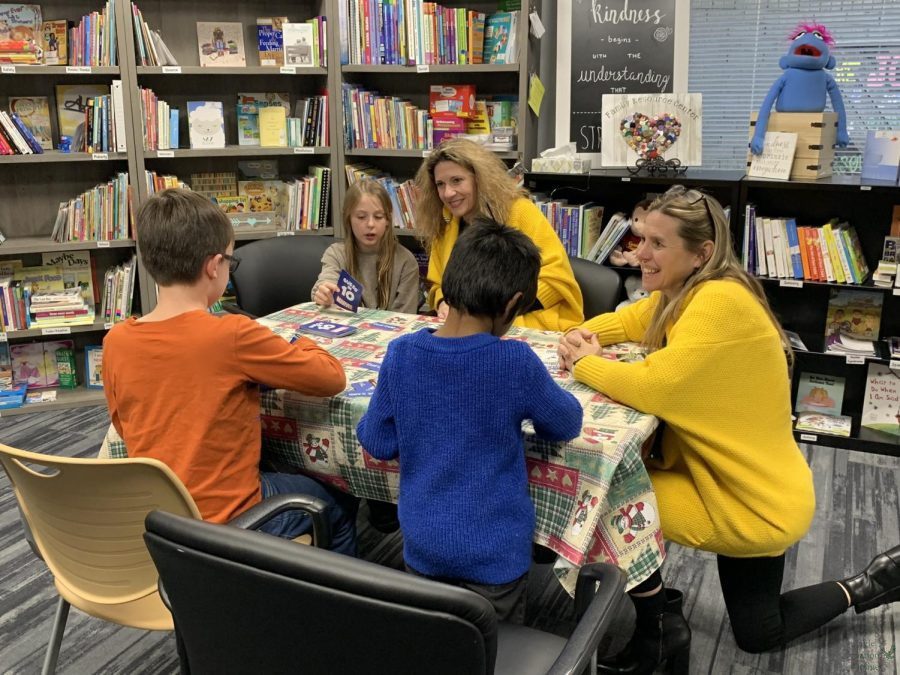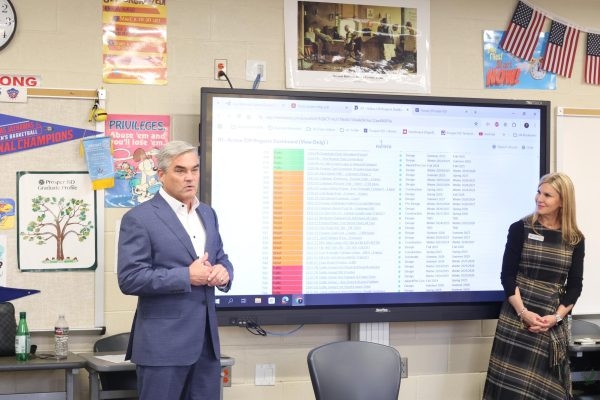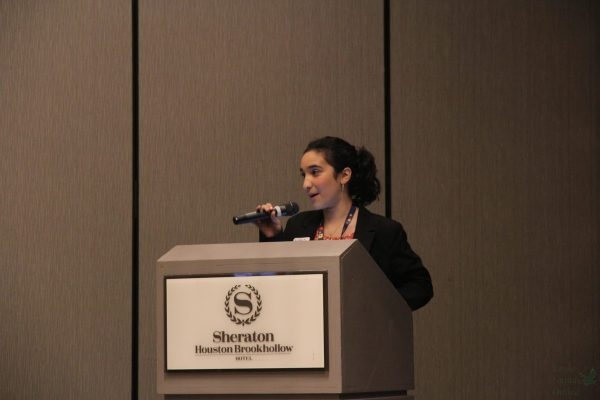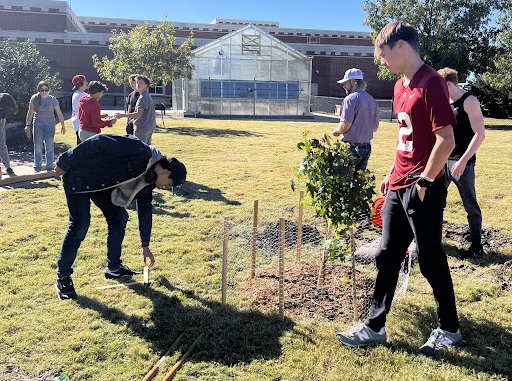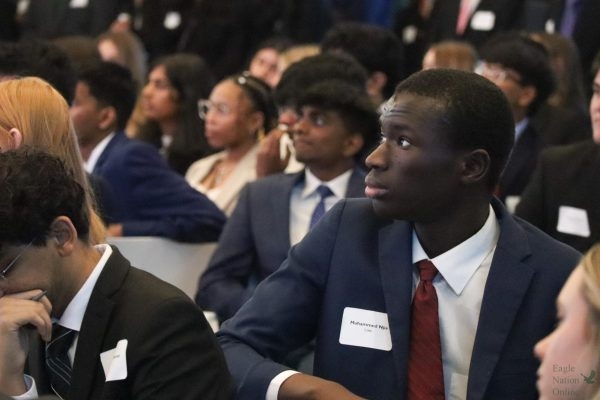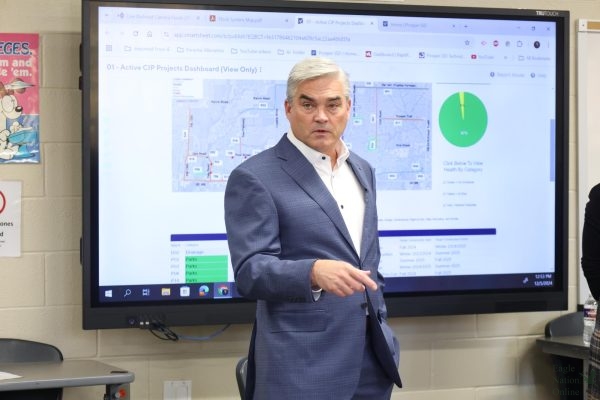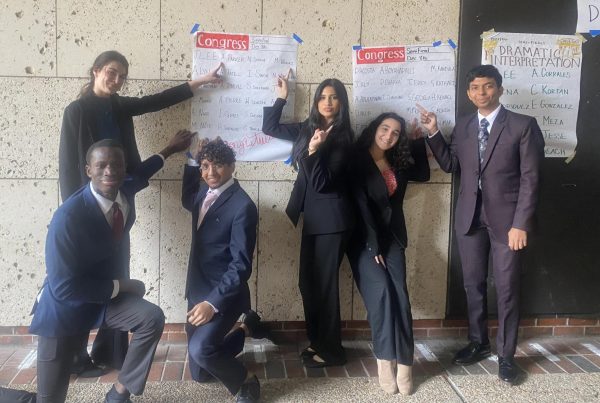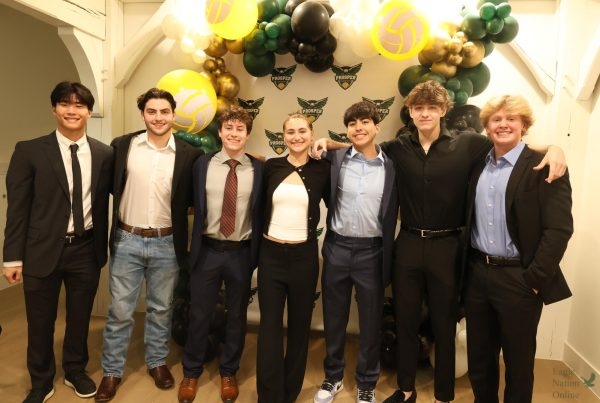Family Resource Center offers support for neurodivergent children, families
Social connections grow with events and volunteer efforts
As three elementary school students play a card game, family support specialists Shannon Tibbits and Colleen Kugler help the play move forward. The Family Resource Center holds weekly “Game On!” events every Wednesday from 4:30 p.m. until 5:30 p.m., where neurodivergent children can practice social skills by playing games with peers. “I love all the positivity that this place possesses — the joy, the support and the encouragement that people receive when they’re here,” Tibbits said. “It’s very inspiring.”
Laughter fills the main room of the Family Resource Center as family support specialist Colleen Kugler opens the door to let in families for the “Game On” event. Children rush to play games with peers, most of whom they connected with through attending the event every Wednesday.
In late 2021, the school district’s Family Resource Center held its grand opening and started providing resources for families of people who are neurodivergent. Neurodivergence is a non-medical term that describes people whose brains develop or work differently for various reasons. This means the person has different strengths and struggles from people whose brains develop or work more typically. The center holds several opportunities for children to socialize, one being “Game On,” which is a time for children of any age to play games – and learn how to connect better with peers.
“The best part (of the program) is things like this – with ‘Game On!’ – when the kids leave, and they’re so excited, and the parents tell us that they can’t wait to get here each week,” Kugler said. “But also, when parents come in, they’re upset and need support, and they leave feeling better.”
Parents can leave after dropping their kids off at the center for the event, or they can choose to stay and spend time in the back quiet room or in the “Joy Garden” outside.
According to Kugler, the goal of these events is to encourage kids to step out of their comfort zones, as socialization can sometimes be difficult for neurodivergent people.
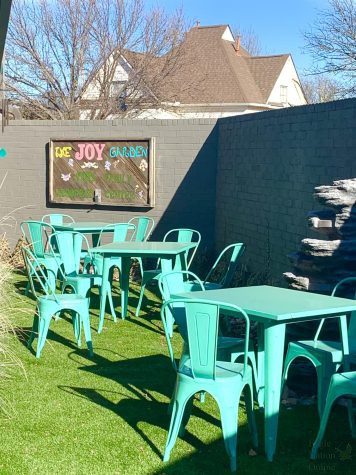
“I love working with the kids, but I (especially) love those moments that you have a breakthrough – like tonight, where we had a little kid finally break away from his sister, and go actually interact with another friend in the group,” family support specialist Shannon Tibbits said. “And, so those are huge milestones that they’re experiencing here. It’s like a safe place of love and support, and they feel comfortable making those steps.”
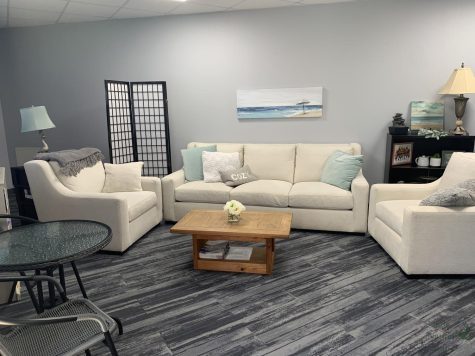
Another event the center holds is the “Squad,” a group of neurodivergent high schoolers meeting monthly to discuss a variety of topics and how to overcome certain challenges, along with activities to accompany the discussion. One activity the group participated in was a “picky-eater bingo.”
“They had to try different foods and were very challenged to try all kinds of different foods,” Kugler said. “It was fun to see how they wanted to do it so bad to fill their bingo board, but they had to put the stuff in their mouth, and one of the students was gagging, but they wanted to do it really bad. So, I was very proud of them for that.”
Along with group meetings for children, the center holds support groups and has a library
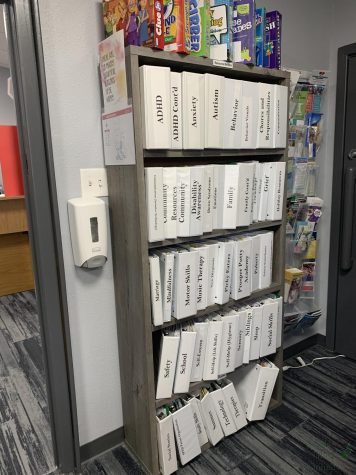
of resources for parents – or anyone – to learn more about different aspects of neurodiversity, such as autism, ADHD, down syndrome, and many other topics. Different sections have a variety of books or other materials. A shelf of resource binders is also included. It holds binders full of articles about a variety of specific topics.
“When (parents) come in, they usually say what they’re struggling with at home,” Kugler said. “So let’s say they’re struggling because their child has anxiety. Then the volunteers will say, ‘oh, we have a binder all about anxiety,’ and the volunteers will tell them to go through and pull out any articles they want. And there are five copies of everything in each binder. So they get to keep it, and they get to take it home.”
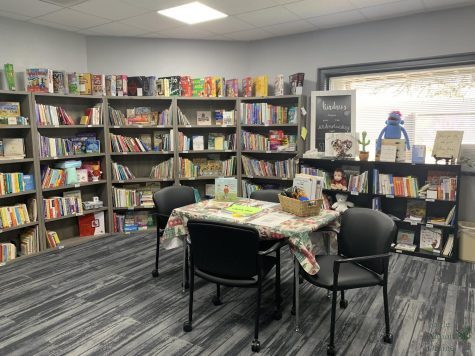
The center is open at 410 East First Street every Tuesday, Wednesday and Thursday that the district is open, from 10 a.m. until 2 p.m. for residents to come in and check out resources.
“My role at the Family Resource Center is to greet all visitors and check them in as well as answer phones and provide support for all the staff,” receptionist Kate Crawford said. “Since I am their first point of contact, I set the tone and make or break their first impression of our office, so it’s important to me to be cheerful and friendly and to make them feel welcome.”
Volunteers during the day are typically adults, however, the center has a variety of events taking place after school hours where a variety of ages are able to volunteer.
“We’re always looking for great volunteers and ‘Game On’ is a great place to volunteer weekly, but we also have activities like our Fall Festival, our Joyful Dinner or our teen squad,” Tibbits said. “If you want to volunteer, just come. We will take you – and your kindness – and we’ll put you to work and you’ll make lots of friends in the process.”
In addition to the many opportunities of socialization with the variety of events the center has, Kugler and Tibbits continue to plan new events for the future to educate others, such as the “Challenge Accepted” event planned for early March.
“Everybody’s going to come through, and kids are going to have stations where they talk about their different life challenges. So there’ll be a station for autism, a station for down syndrome, a station for anxiety, a station for cerebral palsy, a station for using a wheelchair or a communication device, all these different stations,” Kugler said. “And so everybody that comes in will stop at each station to learn about that person and what their different life challenges are, so they can have a better understanding of it and more empathy for others, but also to be proud of people for overcoming their challenges.”
According to its website, the mission of the Family Resource Center is to not only provide families with information about neurodiversity but to provide a sense of hope and connections. Whether it is their events for kids or support groups for adults, the center aims to educate and support all.
“When we know that people leave here feeling better than when they came in,” Kugler said. “That is everything.”
Your donation will support the student journalists of Prosper High School. Your contribution will allow us to purchase equipment and cover our annual website hosting costs.
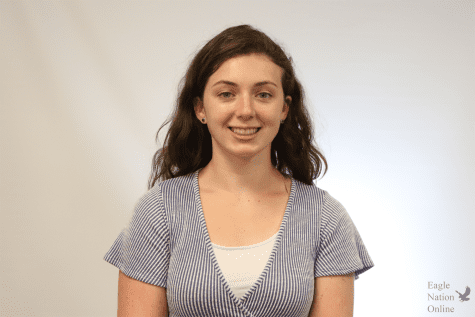
Honors & Awards:
3 Best of SNO publications
National Honor Society member 2022-2023
National Art Honor Society member 2021-2022, 2022-2023
Quill and Scroll member
Excellent New-Feature Story in 2023 TAJE News and Broadcast Best in Texas
Excellent Editorial in 2023 TAJE News and Broadcast Best in Texas
Student of the Quarter for Color Guard 2023
Student of the Year for Digital Media 2022
Student of the Year for Graphic Design II 2023
Student of the Year for Color Guard 2023


